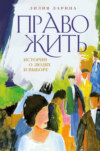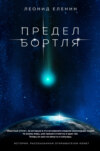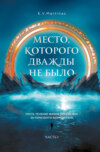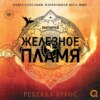Читать книгу: «The Spy», страница 3
8
In February 1947, Kurt Tank turned forty-nine. From 1933 until the end of the war, he was the chief designer at Focke-Wulf. His designs included the fastest fighter aircraft of the war: the Fw 58 “Weihe,” Fw 190, and the high-altitude interceptor Focke-Wulf Ta 152. Towards the end of the war, he developed the design for the turbojet fighter Focke-Wulf Ta 183, which featured the most advanced ideas in jet aviation. In early 1945, he was involved in the work of the Peenemünde rocket centre, focusing on the aerodynamics of the V-2 rocket. Soviet intelligence knew that he had not been among the German rocket specialists taken by the Americans to the United States during Operation Paperclip. Most likely, he was hiding somewhere in Berlin, in the western occupation zones.
It was by sheer chance that Colonel Tokayev’s group stumbled upon Kurt Tank’s trail. One evening, at the end of February 1947, a courier arrived at Tokayev’s cottage on a motorcycle, delivering a note from Captain Kvashnin. The note read: “There’s an interesting catch, needs urgent interrogation.” Grigori immediately headed for Karlshorst, where special facilities had been set up for suspects detained on black markets.
The largest black markets in Berlin were near the Reichstag and around the Brandenburg Gate. Every day, in any weather, thousands of people gathered at these markets. It was the only place where food could be bought or exchanged. By order of the Berlin commandant, General Berzarin, all stores and bakeries were reopened, but there was nothing to sell, and no ingredients to bake bread. Even ration cards couldn’t always be redeemed. Many Berliners were surviving on soup and porridge from Red Army field kitchens, and long queues would form for them. But the main source of food was the black markets. People brought everything that had survived the bombings and fires: clothes, shoes, and cookware. A pair of boots could be exchanged for a tin of canned pork, a carpet for half a sack of potatoes. A kilogram of butter cost six hundred Reichsmarks, a kilogram of coffee about one thousand two hundred marks, and a pack of American cigarettes twenty marks. Cigarettes were used as currency, alongside dollars. Women’s stockings went for four packs of “Camels” or “Chesterfields,” and a slightly worn coat could fetch twenty packs. Everything was being speculated with. A block of cigarettes could bring in one hundred dollars, a bottle of schnapps forty dollars, and a bar of soap five dollars. The most expensive goods were medicine and watches. It was not uncommon for a Mickey Mouse watch, which in the United States cost three dollars ninety-five cents, to sell for five hundred dollars. When the Americans began importing them in bulk from home, the military command issued a special order forbidding US servicemen from appearing at the black markets. Violators were rounded up by patrols and put under arrest.
The most active buyers were Red Army soldiers, who had been paid their wages for several years. They bought anything and everything—clothes, cameras, accordions, watches—and sent them in parcels back home to the destitute Soviet Union, ravaged by years of war.
In the western occupation zones, the Germans had no ration cards. They were paid in Reichsmarks even when factories were not operating. The marks quickly devalued, and the Germans were eager to spend them as quickly as possible. In East Berlin, everything was a little cheaper, and the black markets attracted people from all over the city. They tried to avoid the Reichstag, located in the Soviet zone, and preferred the market near the Brandenburg Gate, which was considered neutral ground. There were no Soviet patrols here, but SMERSH officers in plain clothes were constantly on duty, keeping an eye out for suspicious individuals based on their intelligence reports—likely hiding Nazis.
On that day, at the end of February, the counterintelligence officers’ attention was drawn to a man of about forty, wearing worn-out clothes, with a cap pulled low over his eyes and a large duffel bag slung over his shoulder. He was constantly looking around warily, buying food without bargaining. It was clear he was in a hurry to make his purchases and leave the dangerous area as quickly as possible. His identification card read: Name—Heinrich Hill, Profession—Laboratory Technician, Residence—Steglitz district. Steglitz was in the western sector of Berlin.
Men of his age were subject to mandatory military service in the Wehrmacht. Therefore, Captain Kvashnin, who was on duty near the Brandenburg Gate that day, asked, “What military units did you serve in?” “I was exempted from military service due to flat feet, I have a medical certificate,” Hill replied. He tried to maintain an air of independence, even defiance, but it was clear that he was frightened. He had something to hide.
Hill was placed in a vehicle and taken to Karlshorst. During a search of his duffel bag, they found ten cans of American corned beef, six cans of condensed milk, a large packet of egg powder, and a small bag of natural coffee. Hill explained that he had bought the goods for the professor he had worked for in recent years. The professor was ill and couldn’t go to the market himself. “What’s the professor’s name?” Kvashnin asked. “Herr Tank,” Hill answered. “Kurt Tank.” Captain Kvashnin knew this name very well. He stopped the interrogation and sent the courier to Lieutenant Colonel Tokayev.
When Grigori arrived in Karlshorst, the detainee had somewhat calmed down. He greeted the Soviet officer with a question:
“Herr Oberst, what am I being accused of?”
“Not of anything, yet. It’s just a routine check. We are searching for prominent members of the Nazi party and SS members.”
“I was never in any party. I’m just a simple non-combatant laboratory technician. How could I have been in the SS?”
“And your employer, Professor Tank?”
“I know nothing about it. He is a scientist; never discussed poitics. If he joined the party, only because it was expected. We never talked about this.”
“What was Professor Tank’s field?” Grigori continued interrogation.
“Mathematics.”
“How long have you been working with him?”
“Five years. He hired before the war.”
“Always at his side?
“Yes, he always needed an ssistant.”
“Even at Peenemünde?”
Hill became flustered and didn’t immediately know how to respond. – I don’t understand what you’re talking about. I’ve never been to Peenemünde.
“Relax, Heinrich.” Grigori said, his tone friendly. “We know Tank’s not just a mathematician. He’s a renowned aircraft designer and was involved in von Braun’s rocket program. Its centre was in Peenemünde. We even know what he was working on there – the aerodynamics of the V-2 rockets. The very same ones that were used to bombard London.”
“If you know, why ask me?”
“To see if you’ll cooperate. So far? Disappointing.”
“And if I refuse?”
“Bad choice. We’ll dig. Find out if ‘Heinrich Hill’ is really… say, an Obersturmführer.”
“What do you want?”
“That’s a different matter,” – Grigori approved. “You, Heinrich, are of no interest to us. But Professor Tank is very interesting to us. As I understand it, he’s hiding somewhere in West Berlin. We won’t torture you to get his address. But I would very much like to meet him. We have an offer that might interest him. Will you pass on my request for a meeting?”
“I’ll pass it on, if I see him,” Hill promised vaguely.
“You’ll definitely see him. When you deliver the groceries. You won’t leave your patron hungry, will you? Here’s my number. Call me when you arrange the meeting. My name is Tokayev, Lieutenant Colonel Tokayev. Remind him that we met in Moscow in 1940 at the Air Force Academy.”
“And what if he doesn’t want to meet?”
“Then you’ll tell him there won’t be a meeting. We don’t need anything else from you. Agreed?”
“Abgemacht2,” Hill nodded.
Grigori summoned Captain Kvashnin.
“Take a car and drive Mr. Hill home. He lives in Steglitz. All the best, Heinrich. Don’t forget your groceries.”
Hill departed. Grigori held Kvashnin back.
“Take two men from surveillance. Plain clothes. Have them follow Hill. He’ll be going to see Tank today, no doubt about it.”
The next morning, Captain Kvashnin reported in.
“We found Tank. Hill led us straight to him. He’s living in Steglitz as well, in the ruins of a house – the basement’s still intact. Comrade Lieutenant Colonel, shall we take him?”
“Not yet. We’ll need to inform Serov. It’s his call.”
Colonel General Serov greeted Lieutenant Colonel Tokayev with a sullen look.
“What have you got? Speak.”
The moment he heard they’d located Kurt Tank’s address, his mood lifted.
“Well, at least that’s something. You lot have been wasting your time with God knows what, hauling around scraps of paper.”
“Comrade Colonel General, they’re not scraps of paper,” Grigori replied. “They’re documents from secret archives. Their value will be determined by our scientists.”
“Don’t lecture me – I know,” Serov muttered. “Right, Tokayev. Your assignment: prepare a covert extraction of Tank. Where is he staying?”
“In Steglitz, in the American sector.”
“That complicates things. The operation must be planned down to the last detail. But don’t drag your feet. The sooner Tank is in Moscow, the better.”
“Comrade Colonel General, may I share a suggestion?”
“What kind of suggestion could you have? Go on, then.”
“We could, of course, abduct Tank and bring him to Moscow by force. But wouldn’t it be wiser to take a different approach?”
“A different approach? What do you mean?”
“The same method we used with Helmut Gröttrup.”
Helmut Gröttrup had been a German rocket scientist, head of the guidance and metrology department at Peenemünde, and one of von Braun’s closest associates. In May 1945, he surrendered to the Americans along with the rest of the team. From Nordhausen, he was transferred to Witzenhausen, along with a group of specialists being prepared for relocation to the United States under Operation Paperclip. But just days before departure, Helmut’s wife, Irmgard, made contact with Soviet experts who had arrived in Germany to study Nazi rocket technology. She requested a meeting. It took place at the boundary between the American and Soviet zones. Frau Irmgard – a tall blonde woman in a light-coloured tracksuit – arrived with their eight-year-old son in tow. She explained, “Just in case something goes wrong. I’ll say we were out walking and got lost.” She revealed that her husband was due to be sent to the United States, but she had no wish whatsoever to go. She and her husband were willing to go to the Soviet Union, provided they were guaranteed safety, proper working conditions, and a decent life. The decision had to be made swiftly. Our people contacted Serov. He agreed to the Germans’ terms – otherwise, they would have ended up in America. Helmut, Irmgard, and their two sons were transferred to Moscow, and from there to Gorodomlya Island on Lake Seliger, near the town of Ostashkov. There, in a specialised branch of the rocket research institute, around four hundred specialists worked – of whom one hundred and seventy-seven were Germans: professors, doctors of science, and qualified engineers, some forcibly relocated from Germany, others, like Gröttrup, who had come of their own volition. The productivity of the volunteers far surpassed that of those working under duress.
It was this very man that Tokayev reminded Serov of. His reasoning was straightforward: Kurt Tank had had the opportunity to leave for the United States, yet he had declined. It was entirely possible, Tokayev believed, that if the Soviets could guarantee his safety and provide comfortable working conditions, he might agree to relocate to the Soviet Union. And if they could persuade him to speak on Radio Moscow, the propaganda value would be considerable.
Colonel General Serov frowned for a long while, slowly shaking his head, as if weighing up scenarios known only to himself. At last, he spoke:
“Very well. You’ve convinced me. Go ahead. But mark my words, Tokayev—if you lose Tank, I’ll have your head. Understood?”
“Understood, Comrade Colonel General,” Grigori replied crisply.
Two days later, Hill rang. He reported that Professor Tank was willing to meet with Lieutenant Colonel Tokayev—on one condition: that he come alone and in civilian clothes.
The meeting took place a week later. It would prove to change a great deal in Grigori Tokayev’s understanding of the world.
9
Top Secret
To: Deputy Director of MI5,
Mr E. Brown
From: Major D. Hopkins
MEMORANDUM
Sir,
I hereby report on the measures undertaken in connection with the verification of the defector, Lieutenant Colonel Tokayev.
In compliance with your instructions, I contacted the operations division of MI6 and relayed the following directives:
1. Our assets in Russia were tasked with investigating Lieutenant Colonel Tokayev’s family—specifically, his sister Nina and cousin Temur, both residing in Moscow; his cousin Khagudi, currently in Nalchik; and his nephew Khariton, who lives in the Ossetian settlement of Mizur. The objective of this inquiry: to determine whether any of them have faced reprisals following Tokayev’s defection to the West.
2. Intelligence was to be gathered at the Zhukovsky Air Force Academy in Moscow to ascertain whether any of its personnel—particularly those who had worked with or maintained friendships with Tokayev—had come under suspicion or been subjected to punitive measures.
3. A directive was issued to our Berlin network to investigate the present status of Captain Kvashnin, an officer of SMERSH.
4. Arrangements were made for a meeting with the singer Elsa Richter of the “Kronprinz” restaurant to verify the details surrounding her acquaintance with Tokayev.
The following intelligence has been received:
Tokayev’s sister, Nina Alexandrovna, and her husband, military officer Mikhail Yefimovich Klykov, continue to reside in Moscow and have not, it appears, suffered any form of state reprisal.
No information could be obtained regarding Tokayev’s cousins, Temur and Khagudi, nor his nephew Khariton.
After November 1947, two academic staff members at the Zhukovsky Air Force Academy were arrested. However, it remains unclear whether they had any personal or professional association with Tokayev.
Our Berlin station reports that Captain Kvashnin is still serving in SMERSH and has recently been promoted to the rank of major.
An MI6 asset operating as a neurologist at the Soviet military hospital in Karlshorst was able to meet with Elsa Richter and subsequently filed the following account. I reproduce her report in full:
“Upon receiving instructions to establish contact with Elsa Richter, I visited the ‘Kronprinz’ hotel restaurant one evening, where she was performing as part of the evening’s entertainment. The venue was modest—around thirty tables in total. A portion of these were occupied by American and British officers; the remainder by well-dressed Germans from West Berlin, evidently well-off, ordering whisky and expensive German wines. Many were accompanied by young women. From time to time, the Germans would step into the lobby to conduct what were clearly business negotiations. Occasionally, American officers would join them. Deals, as far as I could tell, were being brokered. A jazz band on stage played Western music while couples danced between the tables. The atmosphere in the restaurant was oddly reminiscent of early wartime Berlin—a fevered gaiety born of looming mobilisation, and of departures to the front from which few would return.
Elsa Richter performed midway through the programme. She was a slender blonde with long hair and finely drawn features. Her voice, though not powerful, was well-trained and controlled. She sang selections from Marlene Dietrich’s repertoire, most notably ‘Lili Marleen’, which brought the house to its feet. The entire room joined in.
After completing her set, she stepped down from the stage and joined a group of Americans. One of them, once the restaurant had closed, drove her away in his jeep.
Already envisioning the kind of person I would be dealing with, the next day I made my way to Elsa’s room on Friedhofstrasse. My arrival put her on edge. But when I explained that I was a doctor, and that I had been asked by Grigori Tokayev to visit her and inquire after her daughter’s health, her wariness melted away. She told me that her daughter, who had been suffering from pneumonia, had since recovered, and that she had not seen Grigori for half a year. His wife had come from Moscow, he had said he would no longer be able to visit. She spoke of him with deep affection. Laconic and outwardly reserved, yet a man of great kindness—and, she added with a trace of warmth, an exceptional lover. After him, she said, she found it hard to look at other men. I asked her, “But it passed, eventually?” She said, “Yes, it passed. One must live, after all.”
As we drank ersatz coffee and talked, her daughter lay asleep on a camp bed behind a screen. When I asked where she received her clients, Elsa replied, “Here, where else? I’ve no other place to live.” She told me that before the war, she had studied at the conservatory. When her husband was killed, she had to give it up. She began singing at the Adlon, then the Adlon was bombed. She didn’t like the Kronprinz, but there were no alternatives. As we parted, she asked me to send her regards to Grigori Tokayev. I told her I couldn’t do that—Tokayev had fled to Britain. Elsa cried out, “So he did it after all!” And she told me that once, Grigori had asked her to introduce him to a British officer. He hadn’t said why, and Elsa hadn’t asked. She complied with his request. Tokayev had met with a Royal Air Force major several times. What they discussed, she didn’t know—but now, she understood that he had already begun planning his escape to the West. She added, “I’ve already been asked about Grigori.” When I asked when and by whom, she answered, “Shortly after we parted ways. A Russian officer, captain’s rank. He didn’t give his name. Medium height, fair hair, snub nose, arrived in a Willys. Asked in great detail about the British major I had introduced to Grigori.” – “And did you tell him?” – “Yes. He was very insistent. Warned me that if I withheld anything, he had ways to make my life miserable. I was frightened. Did I get Grigori into trouble?” I replied, “Nothing can harm him now.” That was where we left it.
The information obtained does not allow us to determine whether Lieutenant Colonel Tokayev’s defection to the West was motivated by ideology, as he claims, or whether he was, in fact, a Soviet intelligence operative. Judging by the description, the Soviet officer who questioned Elsa Richter about Tokayev is likely to be Captain Kvashnin. He would have been obliged to report Tokayev’s acquaintance with the British officer to Colonel General Serov. This suggests that SMERSH already harboured doubts about Tokayev’s loyalty. Which makes it all the more perplexing that Soviet counterintelligence made no move to prevent his escape.
Major D. HopkinsFebruary 15, 1948
10
That evening—the one on which Professor Tank had arranged to meet Lieutenant Colonel Tokayev—Grigori set off in his Hansa car towards West Berlin. On the deserted banks of the Wannsee, he pulled up and cut the engine. Twenty minutes later, Heinrich Hill slipped out from the shadows of the ruined buildings, climbed into the car, and gave brief instructions on where to go. The day before, Grigori had studied the route to Tank’s residence on a map, but they drove a convoluted and winding path. It was clear that Hill had no intention of allowing his companion to memorise the way, and Grigori saw no reason to object. After some forty minutes, they turned into a narrow street flanked by bombed-out houses. Hill asked him to steer the car into the rubble and led him towards the basement where Tank now lived.
The basement lay beneath what remained of a multi-storey building—little more than a shell with walls still standing. It contained a dozen or so small cubicles, once used by the building’s tenants to store tools, bicycles, and discarded household goods. Now, people lived in them; behind the doors, male and female voices could be heard, and somewhere, a child was crying. At the far end of the corridor, in front of one of the cubicles, Hill stopped and knocked in a prearranged rhythm. A bolt scraped, the door swung open. The room was dimly lit by a kerosene lamp, its glass blackened with soot.
“Come in, gentlemen,” the host rasped in a hoarse voice, adjusting the lamp’s wick. The light grew stronger.
Grigori looked around. The space was small, windowless, with just enough room for a narrow bed and a table cobbled together from wooden crates, topped with a door used as a makeshift surface. Books and papers were neatly stacked atop it, and a slide rule rested on the pile. Professor Tank was a thin man of average height, his face pale and unwell. He had deteriorated considerably since 1940, when, as part of a delegation of German aircraft designers, he had travelled to Moscow and visited the Zhukovsky Academy. Tank gestured to a stool, then sat down on the bed himself.
“Take a seat, Herr Oberst. I can offer you some coffee. Real coffee. My assistant managed to get hold of a little. Heinrich, see to it.”
While Hill was grinding grain in the hand mill and lighting the spirit stove, Tank studied the guest in silence.
“Good evening, Professor,” said Grigori. “Do you remember me?”
“Yes, we met in Moscow. A long time ago, in another life. You wanted to see me. Why?”
“We hold your achievements in very high regard and are prepared to overlook the fact that you once worked against us,” replied Grigori.
“Have the Americans offered you a deal?”
“They have made their intentions known.”
“Why did you refuse?”
“I’m tired of war. Now that it’s over, all I want is to be left in peace—to be forgotten.”
“The war isn’t over, Professor,” Grigori countered. “Have you heard Churchill’s speech in Fulton?”
“I have. It troubled me deeply. Madness. To finish one war only to prepare for another. History teaches nothing. Not even its most monstrous lessons.”
“Your coffee, gentlemen,” Hill interrupted their conversation.
“Thank you, Heinrich. Drink up, Oberst. Real coffee is a rare thing in Berlin these days. Heinrich, where are you going?” Tank asked, seeing Hill make for the door.
“I don’t want to get in the way.”
“Stay. I have no secrets from my assistant.”
“I’ll go anyway. I’ll keep an eye on the surroundings. It was my fault the Russians found you. I’ll never forgive myself if they take you.”
“Is that likely?” Tank asked once his assistant had gone.
“Yes,” Grigori nodded grimly. “If this conversation leads nowhere.”
“What outcome are you hoping for?”
“Are you acquainted with Helmut Gretchrup?” Grigori asked, ignoring the question.
“I knew him. What does he have to do with any of this?”
“No one has ever evaded the choice history forces upon them. Helmut Gretchrup made his—he agreed to work with us. He’s now in the Soviet Union with his family, provided with everything he needs to live and work.”
“At Peenemünde, Gretchrup worked on the V-2. What’s he doing in Russia?”
“The same. Rockets.”
“Back to working for war? Do you know, Herr Oberst, the one trait I detest most in the German people? Law-abidingness. I’m German, and for that, I loathe myself. Law-abidingness turns a people into a herd—into slaves. Hitler made us into dumb cattle. And Stalin is doing the same to you. Remarkable! After such a terrible war, with tens of million dead, with unspeakable suffering! No. I tell you, no—history teaches us nothing!”
“Calm yourself, Professor,” said Grigori. “No one is going to force you to go to the Soviet Union.”
“You don’t believe that yourself. You’ll receive your orders, and you’ll obey them. Drink your coffee, and let’s end this. I will never again work for war. Not for the Soviet Union. Not for the United States. That’s the one small thing still within my power. My whole family died in Dresden. I want to face them with a clear conscience.”
Hill returned and reported:
“All quiet.”
Tank stood up.
“Farewell, Herr Oberst. Thank you for listening—and for not reaching for your pistol. I don’t care what you choose to do. You’ll do what your conscience tells you.”
Hill escorted Grigori to the car but didn’t get in.
“I’ll stay with the Professor. Just in case—he has a weak heart. Will you find your way back?”
“I will.”
“I figured you knew the address.”
“Call me if the Professor changes his mind.”
“He won’t.”
“Call anyway,” repeated Grigori. “You have my number.”
The next day, he reported to Colonel General Serov:
“Professor Tank promised to consider our offer.”
“Will three days be enough?”
“Let’s give him a week.”
“All right—a week,” Serov agreed reluctantly. “Then prepare the snatch team.”
A week later, SMERSH operatives cordoned off the house in Steglitz where Professor Tank had been hiding in the basement. He was gone. His assistant Heinrich Hill had vanished without a trace as well. Two months later, it was learned they were in Argentina.
Бесплатный фрагмент закончился.
Начислим
+9
Покупайте книги и получайте бонусы в Литрес, Читай-городе и Буквоеде.
Участвовать в бонусной программе

















